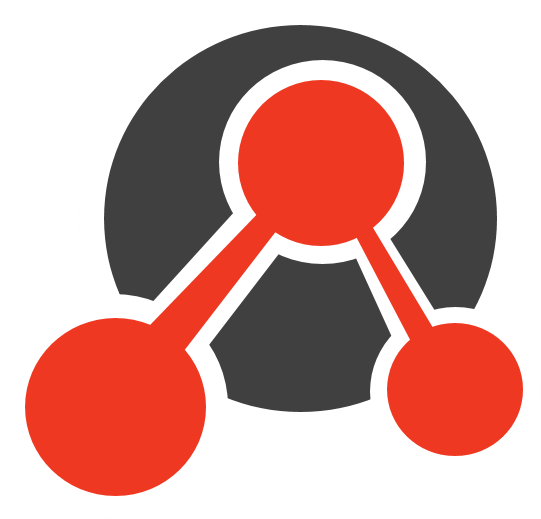Why Your Next Hire Should Be a Millenial
It seems that each generation thinks of the next as a colossal failure. Or, at least it’s my hope that that’s the case after smiling through too many jokes at my generation’s expense at organization meetings, talks, and other development-centered events---all of which leave me thinking, “We can’t be that bad. We’re sitting with you.”
In defense of the generation before us (Gen X), and the generation before them (Boomers), we are different. But, not in the ways you expect or joke about. And, it’s inevitable that Millenials will enter the workplace. We’ll rub elbows with you at the water cooler and play critical roles on future teams.
As Boomers transition out of the workplace and consumer habits change with increased technology and connectedness, it’ll be vital for businesses to adapt to survive. What better way to adapt than to leverage Millenials’ fresh energy, nimbleness, and technological experience to move new strategies forward? Our very value-add is in our perceived flaws.
Here are just a few of the most heard flaws debunked:
We’re about the outcome, not the hours.
It’s not because we’re ungrateful or unwilling to get our hands dirty (or because we believe we’re the beautiful snowflakes our parents told us we were) that we challenge traditional career paths. Technology and globalization have changed the competitive market at the same time that it’s opened up opportunities.
You see us at coffee shops in the middle of the day not because we’re unemployed, but because our employer is headquartered on the opposite coast, or are international, which allows us to work where we want. The heavy push for STEM studies and the fact that we grew up with technology at our fingertips means that we’re often qualified to snag positions that allow remote work (networking, technical and system administration, front-end and full-stack development, and basic coding functions).
These skills and the freedom they provide have made self-starters out of us. We take our work objectives seriously, and do what it takes to get the job done, even if some weeks look like 30 hours and others exceed 60.
We prefer to be busy, not look busy.
We care a lot about the experience of work.
We see perks as culture. In-office ping-pong tables, company bowling leagues, and Halloween parties that award most-unique costumes appeal to us and make us feel like we’re a part of a crew.
Cool extras don’t make up for other business shortcoming, like bad politics or salaries that are incommensurate with our market value. But, culture can win top talent from a competitor because we prefer to work in places that appreciate community and play as much as we do.
We’ve also communicated and collaborated across time zones for as long as we’ve been able to read and write. So, our interests in human-interaction---despite what our smartphones say---don’t stop at the office.
We have close friendships with people who share our passions from places as far as Des Moines, Munich, and Kyoto even if we’ve grown up in the northwest. This may be the reason why so many of us are self-ascribed wander-lusters, seeking to travel and experience new cultures rather than buy a home and settle into one location. We welcome new relationships and risk.
This doesn’t mean we’re flight risks either, it means we’re more open to work-travel and will volunteer to take trips others dread.
We’re jacks of all trades.
First it was soccer; then soccer and piano; and then school-sponsored soccer, piano, chess club, time with a math tutor, and club soccer. Next thing you know we’re captain of our D-1 soccer team, president of the student-athletic council, and a physics major at a top university.
We’ve grown up competing against kids in Ukraine and India, not just the savant down the street. Entrance into college is more competitive than ever because schools can pull from the brightest and most-talented students across the globe. For students to compete, we have to take tough classes, pull 4.0+ average grades, volunteer, and excel in our extracurricular(s).
We leave college relieved that “all we have to do is work.” And, even bright-eyed and bushy-tailed with degrees and work ethic in hand, we still have a hard time finding the good jobs Gen X’ers and Boomers could expect with the same credentials. We quickly realize that the job market is as competitive as college entrance.
We’ve all hustled up-to and through college, so---STEM majors aside---have to have work experience to set ourselves apart. Many of us don’t, though because we were already over-subscribed with too many commitments in college.
We opt to get the all-coveted experience through entry-level positions at large companies. We may crush at our entry-level admin job, streamlining processes and taking on more responsibility, but may not move up until our report-to notices. If we’re lucky, we land a position through a personal connection at a smaller company where we can really have a hand in the business.
Curious why your ‘brilliant, talented’ grandson started driving with Lyft or bartending in his spare time, or your ‘creative, ingenious’ niece started her own Etsy business? The side-hustle is often what pays the bills while we pay our dues.
Think we don’t have what it takes to make it in today’s workforce? I’d argue we’re the most-logical next hire to your team. The work can be taught; our skills can’t be.
I’d love to hear from Millenials and those who work with Millenials. Email me at alexis@returnleverage.com to share your feedback: am I full of it, do you love/hate the Millenials you work with, are you a Millenial grinding and wondering what to do?
Alexis Bennett is a member of the Return Leverage team, and (surprise!) a Millenial. She got her start in business pedaling homemade calendars to her neighbors, and has been “bulldogging” people ever since. Her experience in publishing, contributing as an on-staff editor and freelance writer for Web and print publications, and consumer brands, such as Bodybuilding.com, the American Quarter Horse Association, Horse&Rider Magazine, NRHA ProTrainer, Cashel, and others, allows her to help clients improve communication across teams, departments, and organizations.



